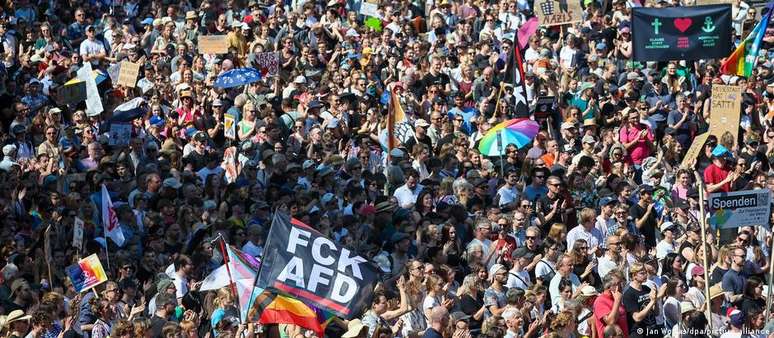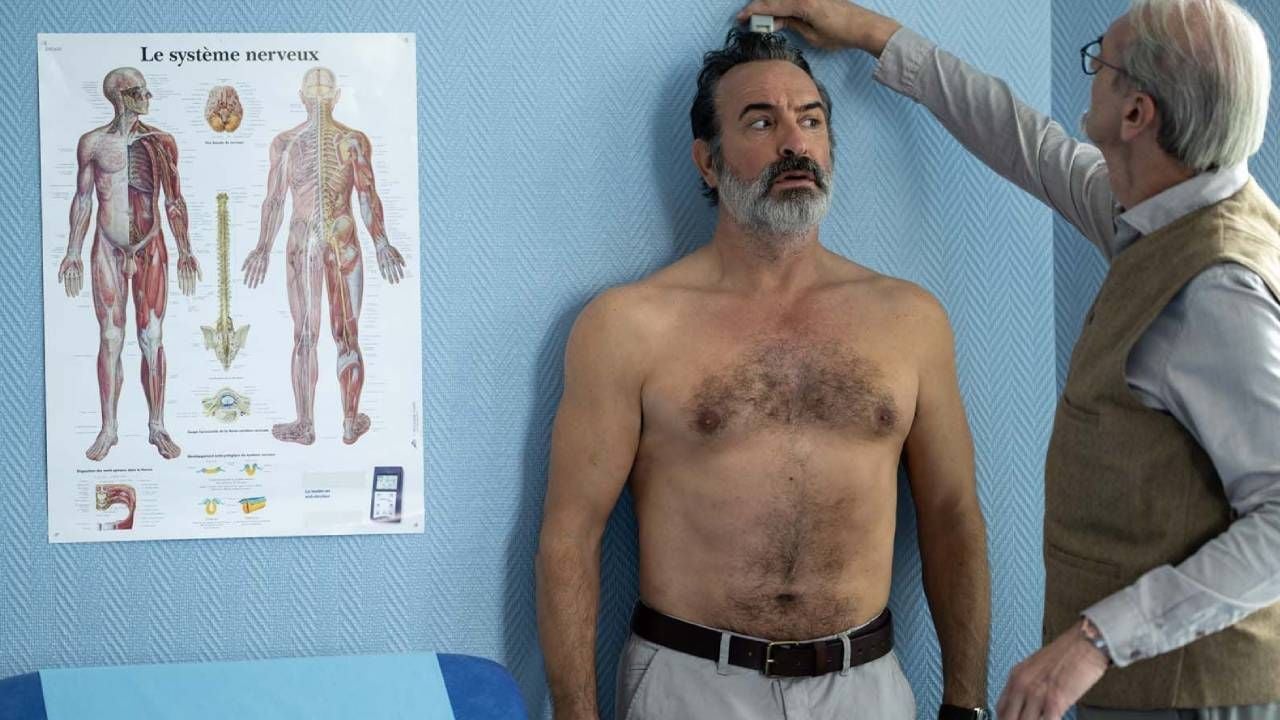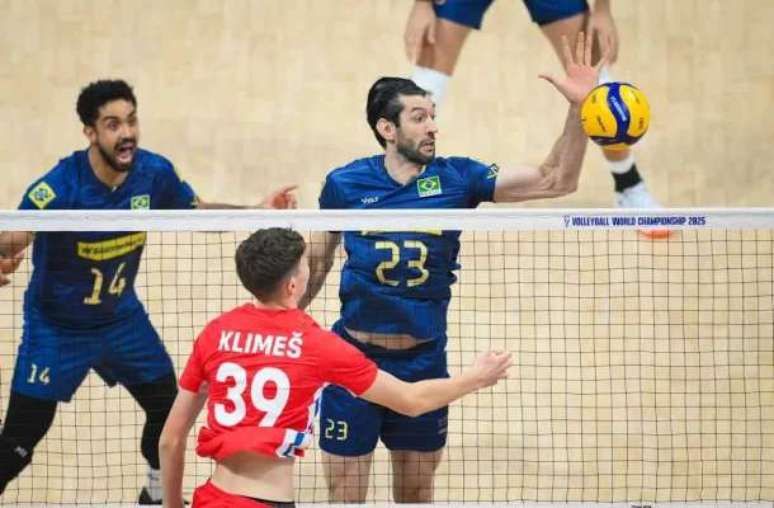Gains in the EU Parliament, new elections in France, growth of the AfD in East Germany: the far right triumphs in Europe. Those with foreign heritage fear for their place in society. Judging by the map showing the winners of the European elections, France is all brown, the color of the far right. Only by looking more closely can you see, here and there, some spots of color. The right-wing nationalist Réunion Nacional (RN) party won 31% of the vote, more than double President Emmanuel Macron’s alliance. He called early elections for the National Assembly on election night.
And while many in Europe are nervous about the formation of Marine Le Pen’s party in government in the final two years of Macron’s term, one group is particularly concerned: immigrants and their descendants.
“Immigrants in France are afraid”
Raja Ali Asghar came to Paris from Pakistan 35 years ago and today heads the Pakistan Muslim League in France. “Immigrants living in France are worried about their future. Right-wing political parties have always had particularly anti-immigration views. Under their government, immigrant problems would increase.”
For example, they fear disadvantages in finding a job and accessing social benefits. “I think immigrant problems in Europe will increase in the coming years.”
Satar Ali Suman, who runs several restaurants in Paris and immigrated from Bangladesh 24 years ago, has a similar opinion. “Everyone knows that far-right political parties don’t like immigrants and Muslims in particular. Immigrants in France are afraid of the days ahead.”
“Fascism has arrived”
The French writer Emilia Roig is even clearer: “Recognizing that fascism has arrived, let’s talk about it in the present. Denying it doesn’t help, it only makes the situation worse,” she writes on Instagram.
And the social welfare NGO Ghett’Up, which works with young immigrants in the Paris suburb of Saint-Denis, says in X: “We need to switch to fight mode.”
In Austria too, the result of the European elections is seen as a test of the climate ahead of the national elections, scheduled for the second half of 2024. The right-wing populist Austrian Freedom Party (FPÖ) has become the strongest in the country, leading of the conservative Austrian People’s Party (ÖVP).
In Italy, the post-fascist group Fratelli d’Italia (FdI), led by Prime Minister Giorgia Meloni, won the largest number of votes in the European elections. Overall, the most right-wing groups in the European Parliament made significant gains.
“Everyone knows that the AfD is far right”
In Germany no party obtained as many votes in the European elections as the AfD, an acronym classified by the internal secret services as “suspected right-wing extremism” throughout the country and even “confirmed right-wing extremist” in three eastern German states. . In two of these states and in a third a new state assembly will be elected in the third semester and in all three the AfD had a clear advantage in the European elections.
This is a cause for concern for many people in Germany, such as the president of the Central Council of Muslims in Germany, Aiman Mazyek. “There is not only a problem for the migrant community, but also for democracy. I believe that part of the democratic parties still does not understand it.”
“The AfD is an established party, at least in eastern Germany. I never want to hear the fairy tale of protest voters again. These are ideologically masked people, who know very well that they are a far-right party.”
Eyüp Kalyon, general secretary of the Turkish-Islamic Union of the Institute of Religion (Ditib), Germany’s largest Muslim organization in numerical terms, says he is deeply concerned about the social divide: “We must recognize that the extremes – both those on the right In some states the left wing and the left wing constitute the majority. What both trends have in common is the adoption of populist and protectionist positions and the poisoning of the social climate.”
“Everyone must do their part”
The European elections in Cologne, western Germany, coincided with the 20th anniversary of the Keupstrasse attack, in which a nail bomb caused 22 injuries, some of them seriously. Only years later did investigators establish the connection with the far-right terrorist group National Socialist Clandestine (NSU), which killed 10 citizens for racist reasons before and after the attack.
The fact that the AfD became the second strongest party on that very day is a “difficult reality to bear,” Cihan Sinanoglu, head of the National Monitor for Discrimination and Racism research project, wrote on X (formerly Twitter).
Meral Sahin has a shop at the site of the attack and took part in the commemoration as co-chair of the interest group Keupstrasse. After the European elections, she commented: “It’s incredibly sad to see how the whole of Europe is moving to the right. What does this mean for all of us? I think a lot of people don’t realise.” And she warns: “More must be done. Everyone must do their part.”
“The dangerous situation could intensify”
The AfD received harsh criticism in January after the revelation of a secret meeting in which they discussed how to “remigrate” – that is, deport – large numbers of immigrants or descendants of Germany.
The concerns of groups with a migrant background are not adequately addressed, criticizes Tahir Della of the Black People Initiative in Germany: “Instead they fear losing voters, losing trust and therefore losing power, so to speak.” However, the central problem is different: “If these movements grow and strengthen, the threat situation for people of color, immigrants and refugees will also intensify.”
Recently, advice centers for victims and the police have warned of a significant increase in politically motivated right-wing crimes in Germany, especially those motivated by racism and anti-Semitism. After the European elections, many fear that this trend will not stop on the continent.
Source: Terra
Rose James is a Gossipify movie and series reviewer known for her in-depth analysis and unique perspective on the latest releases. With a background in film studies, she provides engaging and informative reviews, and keeps readers up to date with industry trends and emerging talents.






